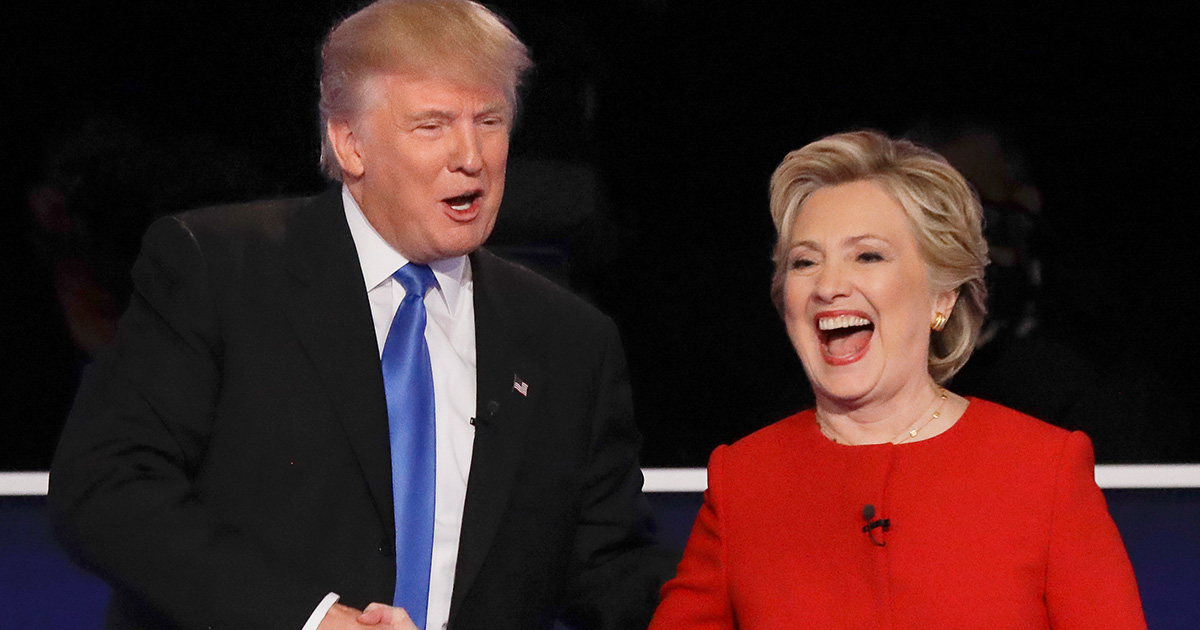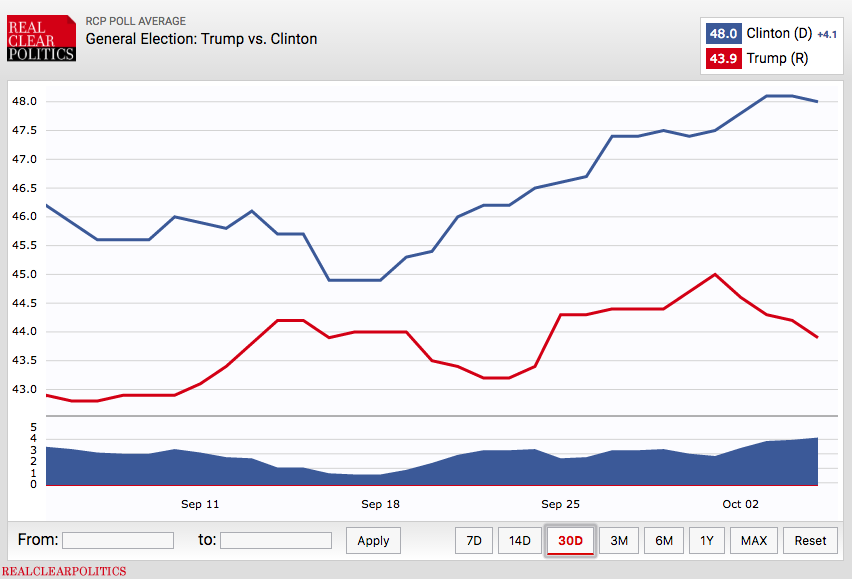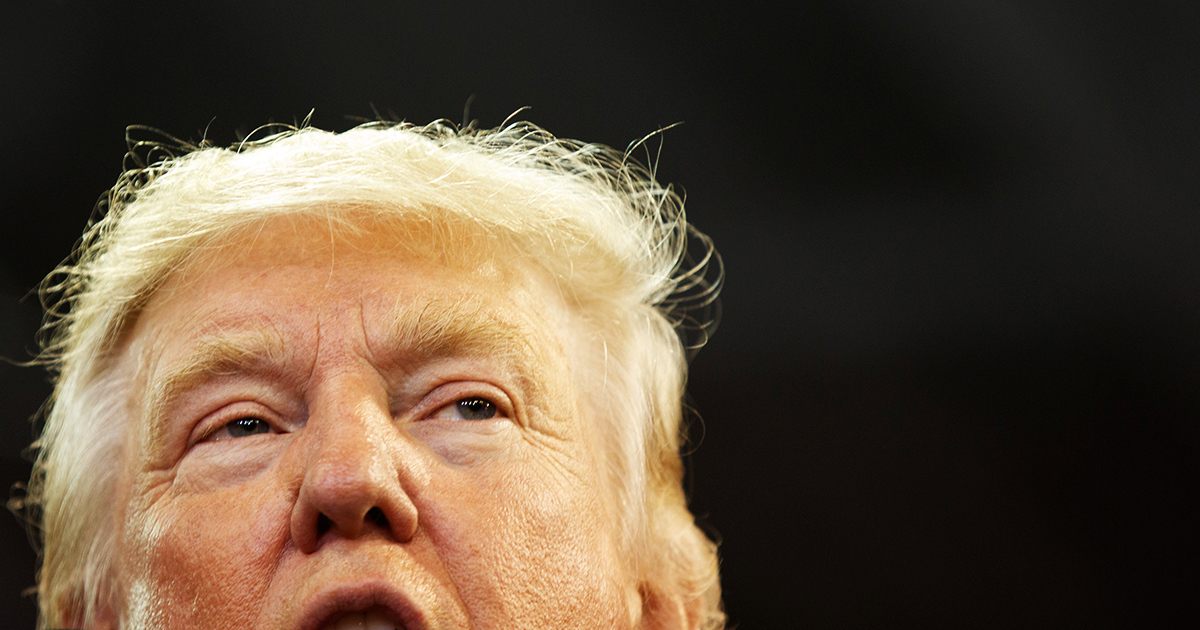The Bad News Donald Trump Doesn't Want You to See

By:
If you check out recent public polls on the 2016 election, the takeaway is pretty clear: Republican presidential nominee Donald Trump took a hit following his performance at the first presidential debate last week — and he's yet to recover. Behind the scenes, however, insiders from both parties have disclosed that Trump's situation may be even worse than it looks.
 AP/David Goldman - apimages.com
AP/David Goldman - apimages.com
A dozen strategists from both parties recently told The New York Times that private polls — which have different standards than public polls and are unavailable to voters — show Trump losing by a greater margin than those reported in traditional surveys. (For context, RealClearPolitics has Democratic presidential nominee Hillary Clinton ahead by about four points, according to public polls.)
 RealClearPolitics - realclearpolitics.com
RealClearPolitics - realclearpolitics.com
This section from the Times' report is especially telling:
"Mr. Trump has already slipped perceptibly in public polls, trailing widely this week in Pennsylvania and by smaller margins in Florida and North Carolina — three states he cannot afford to lose. But private polling by both parties shows an even more precipitous drop, especially among independent voters, moderate Republicans and women, according to a dozen strategists from both parties who spoke on the condition of anonymity because the data was confidential."
ATTN: talked to Dr. Bill Schneider, a professor of public policy and international affairs at George Mason University and an expert on polling, to get some further insight into the report.
 AP/Evan Vucci - apimages.com
AP/Evan Vucci - apimages.com
ATTN: Can you talk about some of the technical differences between private and public polling?
Bill Schneider: First of all, private polling is often sponsored by "interested" parties. They often are partisan. They often work for candidates. So one always has to be careful using private polls, as to whom it was done for, and what was the purpose. Some private polls are, of course, entirely respectable — but a private poll is always done for a reason. You always have to know what is the reason it's being done. Public polls are done to inform the public. They're often done by a media organization, and they don't usually have a partisan agenda — although some media organizations do have a partisan agenda. So there is a reason to be a little bit nervous about private polling.
Also, the voter screens may be different. Private polling may impose a tougher voter screen, which means it's harder to be defined as a likely voter, and that could make a difference in the outcome. Generally speaking, one is likely to have more confidence in public polling only because those poll are held up to public scrutiny and they have to obey certain standards.
ATTN: What might account for the difference in public and private polls results for Trump?
BS: My only guess — and this is wholly a guess — would be that it indicates that they're interviewing a larger sample of voters because the voters who are less likely to vote tend to be more negative toward Trump. Every poll has to define a voter screen because, frankly, at most 60 percent of eligible voters will participate in the presidential election. Eligible voters means people who are citizens and 18 years old or older. But only about 60 percent of that group will actually vote. Some of them — many of them — are not even registered. So what happens is, a private poll may not impose as tough a voter screen as a public poll and, therefore, more people get into the sample, more people pass the test to be likely voters, and the more people who pass those tests, the better Hillary Clinton is going to do.
ATTN: How could unfavorable polling results for Trump affect Republicans competing for seats in Congress?
BS: I don't know about bad polling, but I know that Republicans are terrified that Trump will be a catastrophe at the polls and he could bring them all down because when you get a high turnout — the highest turnout of any election is for president — and when people vote for a presidential candidate, they usually vote for that candidate's party. Which is why, when presidents get elected, like Obama or George W. Bush, they tend to carry a lot of their fellow partisans with them. The Republicans are absolutely terrified that moderate Republicans may stay home because they don't want to vote for Donald Trump — that you could get a heavy turnout of minority, young, and female Democrats who are horrified by the thought of Donald Trump becoming president. Yes, there is a spillover effect always from a presidential candidate.
ATTN: If members of Clinton's campaign have access to this private polling data that shows Trump losing by even greater margins than public polls show, why wouldn't we be seeing this data leaked to undermine Trump?
BS: They may not want to leak information that says, "we've got this in the bag." What they're trying to do is get Democratic and pro-Clinton turnout as high as possible, and to do that, you have to get people a little bit worried that she may lose. I don't think they necessarily — I mean, it might help her raise money to show that she's doing well, but she has a lot of money. I don't think she's desperate to raise money. She's desperate to get voter turnout up, particularly among Millennial voters. And among Millennial voters, what you're likely to find is if they think the election is over, Clinton has won, it's in the bag, it's a predetermined outcome, they're just not going to bother to vote, because many of those people — young people particularly — aren't crazy about Hillary Clinton. I don't think she wants it to look like there's no reason to come out and vote for her.
